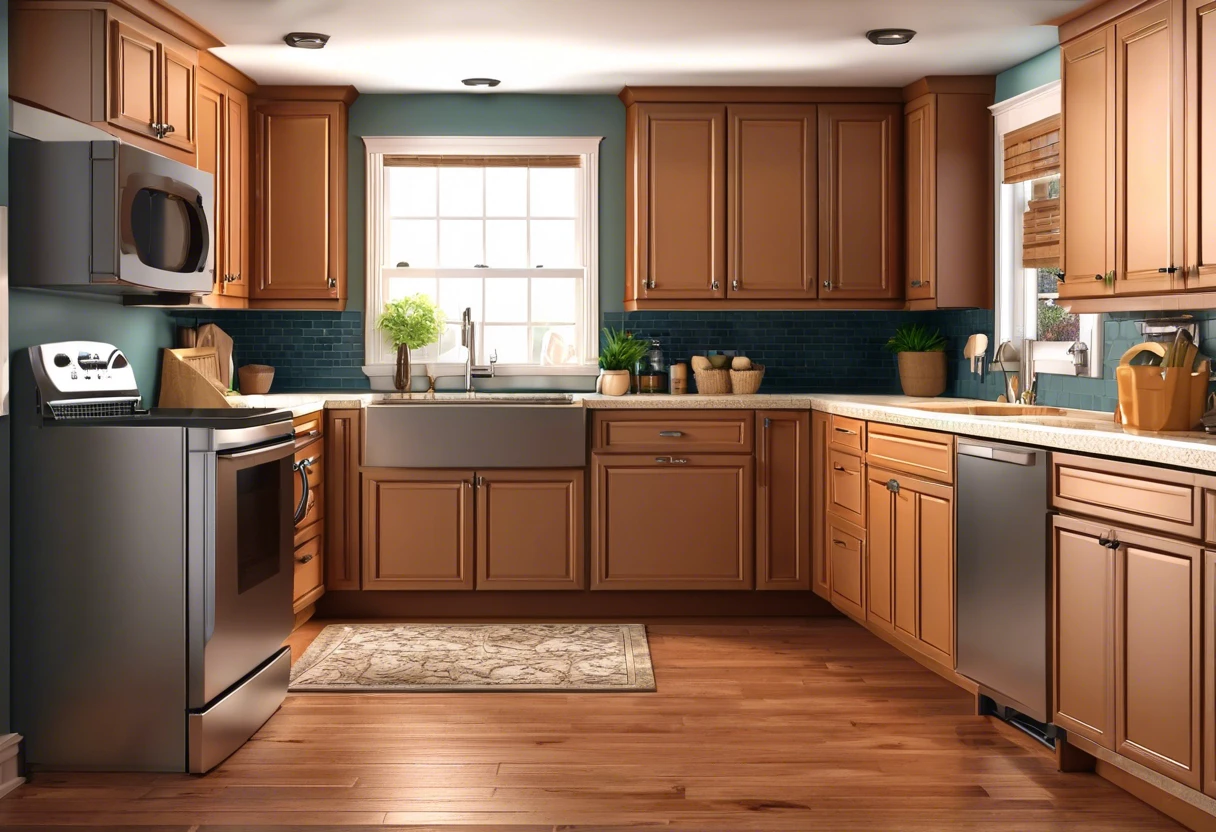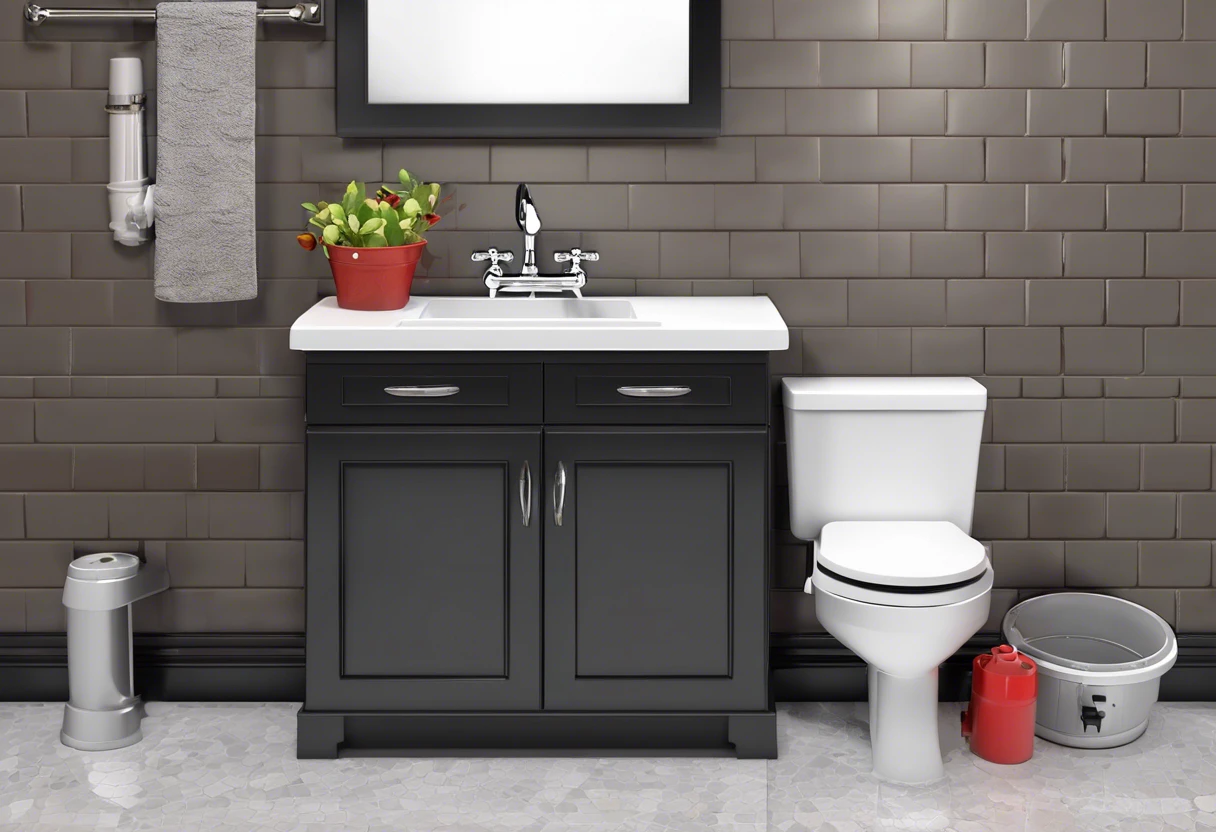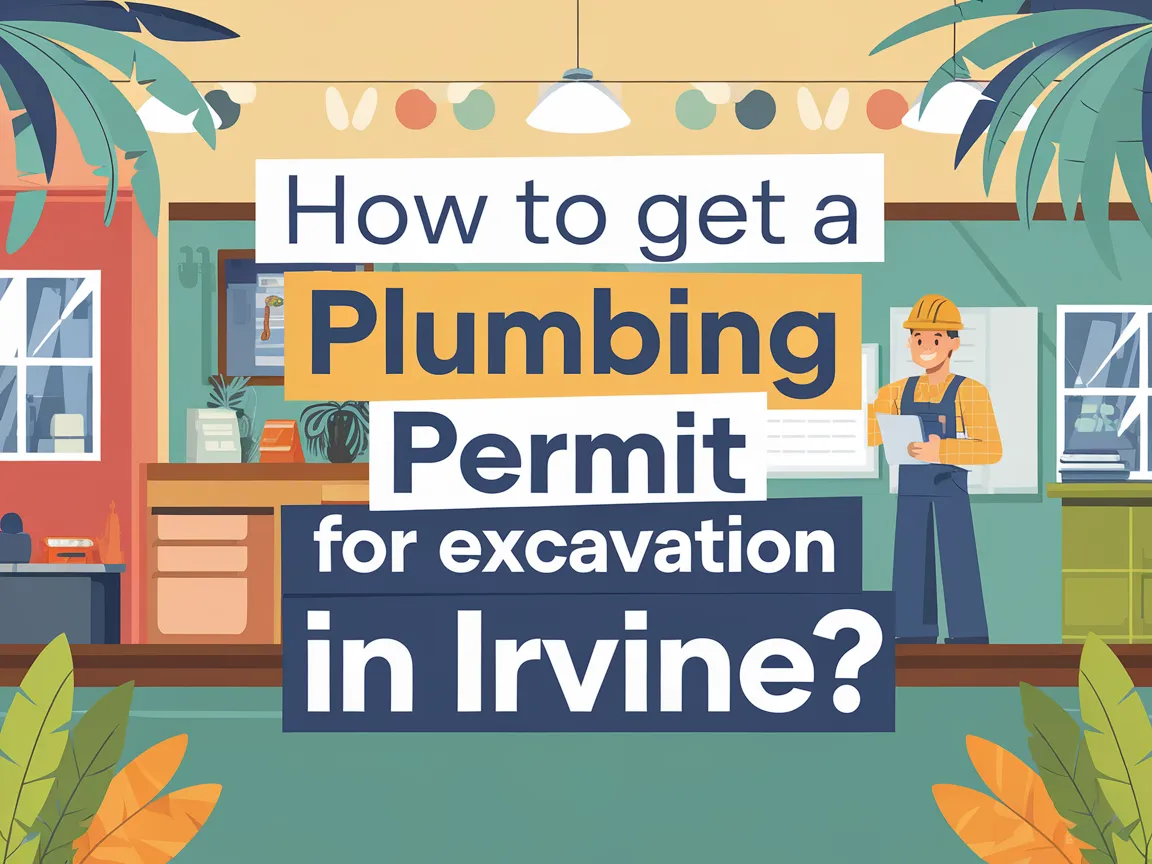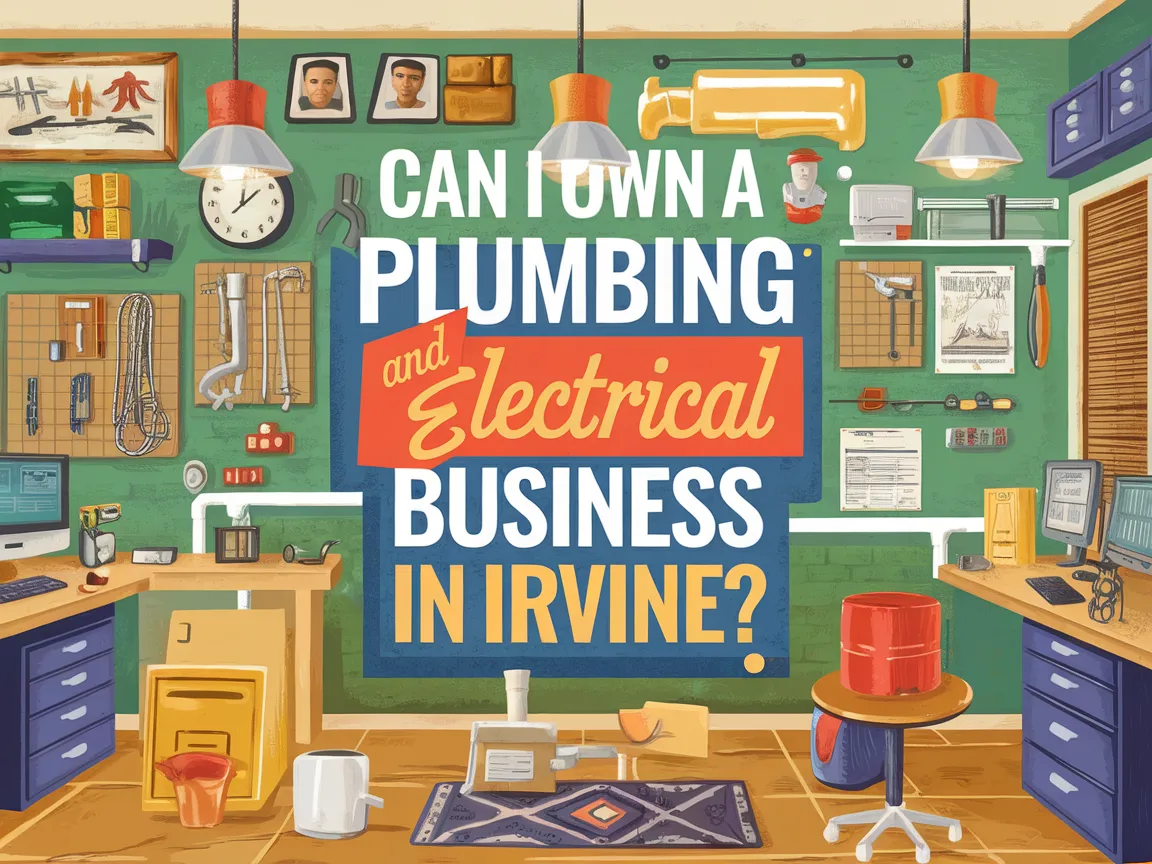Are Garbage Disposals Bad for Plumbing?
Last Updated: February 27, 2025
Garbage disposals are special machines you put in your sink. They help chop up food so it goes down the drain easier.
Over the years, one question that keeps coming up is are garbage disposals bad for plumbing. I’ve seen first-hand how some homeowners struggle with these gadgets, and in this piece, I’ll break down the key points about them.
In this guide on are garbage disposals bad for plumbing, we’ll cover what garbage disposals are, essential things to know before using one, proper usage tips, costs involved, factors that affect performance, special homeowner considerations, and when to call a plumbing expert.
Table of Contents
- Are Garbage Disposals Bad for Plumbing?
- What Are Garbage Disposals?
- Before You Start… Essential Considerations
- How to Properly Use a Garbage Disposal
- How Much Does It Cost to Install and Maintain a Garbage Disposal?
- What Are the Factors Affecting Garbage Disposal Performance?
- Impact of Garbage Disposal Size on Plumbing
- Garbage Disposals vs. Other Waste Systems
- Special Considerations for Homeowners With Garbage Disposals
- When to Contact a Plumbing Expert About Your Garbage Disposal
- Common Misconceptions About Garbage Disposals and Plumbing
- Garbage Disposal Failure Signs and Your Plumbing
- Garbage Disposals: Friend or Foe?
- Final Words: Weighing the Pros and Cons Of Garbage Disposals
- Additional Resources
Are Garbage Disposals Bad for Plumbing?
No, garbage disposals aren’t bad for plumbing when used properly. They can actually help reduce food waste and prevent clogs in your pipes. Just avoid tossing tough items like bones or fibrous veggies into them. Regular maintenance keeps them running smoothly. If you’re experiencing persistent drain issues, a professional plumber can help you diagnose and clear stubborn blockages.
What Are Garbage Disposals?
Garbage disposals are handy kitchen tools, usually installed under your sink, that grind up food waste. This waste mixes with water and flows down your drain, reducing the trash that ends up in landfills. Normally, they come with a motor size ranging from 1/3 horsepower to 1 horsepower (0.25 Kw to 0.75 Kw), enabling them to handle both soft solids and tougher organic materials. Did you know that using a garbage disposal can decrease food waste collected by around 20%? Pretty cool, right?
But when you ask, “Are garbage disposals bad for plumbing?”—that’s a whole other story. If you’re not careful about what you toss down there, you might end up with clogs and jammed mechanisms. It’s roughly estimated that 80% of plumbing issues stem from inappropriate disposal of items. Finding that perfect balance is essential—so be cautious! I always share the phrase $PASF (Prompt Accurate Safe Fix) with my clients regarding the proper usage and maintenance of garbage disposals! Professional plumbers recommend developing smart disposal maintenance techniques to prevent potential kitchen plumbing disasters.
Before You Start… Essential Considerations
What do you need to know before diving into whether garbage disposals are bad for plumbing?
- Garbage Disposal Model: It’s crucial to pick a model like the InSinkErator Evolution series. These units provide powerful grinding capabilities that reduce wear on your plumbing by breaking food waste into smaller pieces.
- Plumbing Snake: You need a plumbing snake, like the FlexiSnake Drain Weasel, to help clear any potential clogs caused by garbage disposal usage. This tool helps maintain the integrity of your drain lines.
- Adapter Kit: If you’re retrofitting, an extension adapter kit, such as the Waste King 8000 series, is essential for fitting your plumbing. This ensures that the garbage disposal system integrates well with existing pipes, minimizing stress on older materials.
- Dish Soap: A heavy-duty dish soap, such as Dawn Ultra, is necessary for flushing the system pre- and post-installation. It helps reduce the thickness of grease buildup, which is a common issue in plumbing.
So far we covered essential considerations before getting started. Let’s look at how to properly use a garbage disposal next.
Also See: Do You Lose Shower Water Pressure With Plumbing in Ceiling?

How to Properly Use a Garbage Disposal
Let’s dive into how to keep your garbage disposal working smoothly without harming your plumbing here in the OC.
-
Understand What Can and Cannot Go in the Disposal
Limit what goes inside. As a general rule, avoid putting fibrous foods like celery or starchy foods like pasta into your disposal. They can form clogs over time and lead to plumbing issues. Sticking to soft vegetable peels and small amounts of grease—just enough to wash through—keeps things running smoothly.
Here’s a little secret from my years fixing pipes all over Irvine: Always listen for any unusual crunching noises or slowing water as you grind. These signs suggest food build-up or potential jams that you’ll want to check out. If you’re considering expanding your skills beyond plumbing, you might want to explore plumbing DIY techniques.
-
Run Plenty Of Water While Using the Disposal
Keep the water flowing. As a rule, run a steady stream of cold water (About 1-2 Gallons Per Minute) while using the disposal, and for a few seconds afterward. This force helps push food waste further down the pipes and keeps that stagnant environment where clogs can form at bay.
If things still feel sluggish, consider using a plumbing snake or the baking soda and vinegar method. With a bit of luck, those blocking particles will head back to the city sewer where they belong. Heavy rainfall can sometimes exacerbate drainage issues, so it’s worth knowing how rain impacts plumbing systems.
-
Regularly Maintain Your Garbage Disposal
Ensure consistent upkeep. Running a lemon or lime through your disposal once a month not only freshens things up, but using ice cubes for a scrub can work wonders. Ice gets wedged against food bits, kind of like taking a toothbrush to your disposal. Plus, enzymes can literally digest organic matter stuck inside.
Every so often, inspect the unit for rust or any visual blockages, especially before our notoriously long fire season. Keeping synthetic grease off the unit joints ensures smooth functioning, letting your disposal do its job better.
Pro Tip: Regularly cleaning gaskets with vinegar helped my old unit run like new—it’s a trick some people overlook!
We’ve wrapped up proper garbage disposal usage and maintenance tips here. Let us turn our attention to installation and maintenance costs.
How Much Does It Cost to Install and Maintain a Garbage Disposal?
Installing a garbage disposal can cost you between $150 and $700, depending on the unit and installation method. If you hire a pro, expect to pay around $100 to $300 for labor. From my experience, you should budget about $400 overall and keep an eye out for unexpected costs like additional plumbing adjustments—especially in older Irvine homes, many built over 20 years ago with outdated plumbing structures. When tackling complex installations, you might need specialized tools like a professional plumbing snake rental. It generally takes a few hours to install, so get stoked for some kitchen upgrades!
Cost Breakdown Of Garbage Disposal Installation
| Item | Low Estimate ($) | High Estimate ($) |
|---|---|---|
| Garbage Disposal Unit | 75 | 400 |
| Installation Labor (Professional) | 100 | 300 |
| Additional Plumbing Cap (If Needed) | 50 | 150 |
| Permit Fees (If Required) | 0 | 50 |
| Total Estimate | 225 | 950 |
You should now have a good understanding of garbage disposal installation costs and maintenance. In the next part, we’ll discuss performance factors.
What Are the Factors Affecting Garbage Disposal Performance?
So, what factors can impact how garbage disposals affect your plumbing?
-
Type of Garbage Disposal – Different models have varied power and blade designs, which affect efficiency in grinding food. Some are hella strong, while others might struggle with tougher scraps.
-
Pipe Diameter – Narrow plumbing can clog easily, impacting overall drainage and leading to backflow issues. If you’ve ever had a sink that wouldn’t drain, you know what I’m talking about! When dealing with stubborn clogs, it’s crucial to understand the potential risks of chemical solutions on your specific pipe material. Chemical safety for PVC pipes can help prevent long-term damage.
-
Item Exceptions – Grinding non-disposable items like bones can quickly ruin a disposal unit and drive any plumber to the edge. Seriously, just don’t do it!
-
Municipal Regulations – Certain local laws may limit usage or disposal technology, introducing risks for your plumbing investment. It’s always smart to check local regulations before diving in. If you’re considering a career in this field, you might want to explore how long it takes to become a plumber.
You should now have a good understanding of the factors influencing garbage disposal efficiency. In the next part, we’ll discuss how size affects plumbing.

Impact of Garbage Disposal Size on Plumbing
The size of your garbage disposal can greatly affect its interaction with your plumbing.
- Standard Sizes: Most garbage disposals come in 1/3 to 1 horsepower (0.25 to 0.75 Kw). Higher horsepower units grind food waste more efficiently, reducing the risk of clogs.
- Pipe Size Requirements: Ensure your disposal’s output matches your plumbing diameter. Standard kitchen pipes are usually 1.5 to 2 inches (3.81 to 5.08 cm). Mismatches can lead to backups.
- Kitchen Size Factor: In smaller kitchens, a compact disposal (1/3 HP) might suffice, while larger kitchens benefit from a higher horsepower unit (1-3 HP) for speedy disposal of food waste.
Garbage Disposals vs. Other Waste Systems
Comparing garbage disposals to other waste systems exposes key differences and impacts on plumbing.
| System Type | Advantages | Disadvantages |
|---|---|---|
| Garbage Disposal | Reduces landfill waste, convenient for food scraps, prevents bad odor. | Might cause plumbing clogs, requires regular maintenance. |
| Composting | Environmentally friendly, reduces waste better than disposals. | Take up yard space, can attract pests if not managed. |
| Traditional Trash Bins | No plumbing impact, suitable for all types of waste. | Increase landfill load, bad odors, requires frequent disposal. |
Special Considerations for Homeowners With Garbage Disposals
Here are some important factors to keep in mind while using garbage disposals:
- Pipe Size Compatibility: Most kitchens have 1.5 to 2-inch (3.81 To 5.08 Cm) pipes. Make sure your disposal matches this to avoid clogs.
- Suds Build-Up: You might notice bubbles overflowing. Too much soap can cause build-up in disposals, forcing you to refresh your system with a cleaning cycle.
- Power Needs: Many disposals require a 120-volt outlet. If you’re installing one in newer homes, make sure it’s primed to avoid voltage drops during use.
- Ice Cube Maintenance: Feed ice cubes occasionally, like a soft scrub, to break down hard food particles and keep blades sharp.
- Service Allergies for Pets: Rover’s ground scraps can be minimally impactful, but if nothing works, invest in eco-friendly enzymes to keep drains running smoothly.
When to Contact a Plumbing Expert About Your Garbage Disposal
You know that feeling when your garbage disposal acts up? Yeah, that’s when it’s a smart move to call in a pro. Pay attention to persistent noises, a funky smell, or if it’s leaking. When looking for an expert, consider their experience with garbage disposals specifically—someone who knows Irvine’s unique plumbing scenarios is ideal. If you’re serious about becoming a professional plumber yourself, check out the steps to obtain a plumbing license in Irvine.
I once dealt with a disposal that seemed like a wannabe juicer. It was a pain to diagnose! Keep an eye out for companies offering quick response times and great reviews. In my experience, a poorly installed unit can really mess up your home’s plumbing. So, if you notice anything sketchy, you know what to do! When troubleshooting complex plumbing systems, it helps to understand the nuanced relationship between different home systems and potential water heater installation challenges.
Common Misconceptions About Garbage Disposals and Plumbing
Let’s clear up some myths about garbage disposals and plumbing before you decide if they’re a good fit for your home in Irvine.
- Myth #1: All Garbage Disposals Are the Same – You might think all disposals grind food waste equally. In reality, different models vary in power and durability. More robust units, like those with 1 HP motors, handle food waste better, reducing the risk of clogs.
- Myth #2: You Can Put Anything in a Disposal – So wrong! Some homeowners believe they can toss just about anything down the drain. But remember, tough items like bones and grease create serious jams and plumbing issues.
- Myth #3: Garbage Disposals Eliminate Plumbing Issues – It’s a common fallacy that installing a garbage disposal will end all plumbing problems. Regular maintenance and proper usage are essential to avoid clogs and leaks.
- Myth #4: Disposals Are Bad for Septic Systems – In contrast to popular belief, many modern septic systems work well with garbage disposals when used correctly. Just ensure you’re sticking to the right food items!
Garbage Disposal Failure Signs and Your Plumbing
Recognizing red flags early can save your plumbing from serious damage. Here’s what to watch for:
- Frequent Jamming – If your disposal frequently jams, it means something’s not right. This overuse can strain your plumbing over time.
- Unpleasant Odors – Bad smells indicate leftover food in pipes. If cleaning doesn’t help, it can mean a clog is building up, which might lead to larger plumbing issues!
- Slow Drainage – If your sink drains slowly, it’s a clear sign your disposal isn’t functioning. It could indicate a clog in the pipes or a malfunctioning disposal unit.
- Unusual Noises – Grinding sounds, or worse, silence when you turn on your disposal could be a worrying indicator of a failing unit.
Don’t ignore these signs! They can lead to bigger plumbing problems that’ll cost you hella bucks in repairs—better to catch them early!
Garbage Disposals: Friend or Foe?
So, you’re thinking about—or maybe you’ve already got—a garbage disposal in your kitchen, huh? Plumbers often have mixed feelings about these little machines. Sure, they’re convenient, but if misused, they can lead to some pretty gnarly clogs that could cost you a pretty penny.
The downside to a garbage disposal is that it can really strain plumbing systems over time. It’s designed to shred food waste into tiny bits, but if you’re tossing in hard items like bones or fibrous veggies, you’re just asking for trouble. Clogs and bad odors in your drains are no fun! Copper pipes can develop serious damage from repeated stress, which might lead to unexpected pinhole leaks in plumbing.
You might be wondering, “Do garbage disposals damage pipes?” Well, they can if you’re not careful. If you’re tossing in things that don’t belong, you’ll shorten the lifespan of your pipes. And just so you know, repairing damaged pipes can run you over $200. Yikes! If you’re considering a career in plumbing and want to prevent such costly mistakes, professional plumbers know best.
Now, Is it better to not have a garbage disposal? Honestly, it depends on your home and plumbing system. If you’ve got frequent clogs from drains, it might be more trouble than it’s worth. You might want to think about composting instead—lots of my neighbors in Irvine swear by it! When dealing with stubborn drain blockages, you might need to rent a professional plumbing snake.
To tell if your garbage disposal is working properly, listen for loud noises (It Shouldn’t Sound Like a Blender Gone Rogue), check for leaks, and feel for weird vibrations. If something’s off, you might have misalignment or an underlying plumbing issue.
Final Words: Weighing the Pros and Cons Of Garbage Disposals
That brings us to the end of our discussion where we covered what garbage disposals are, essential considerations before starting, proper usage, installation and maintenance costs, factors affecting performance, special homeowner considerations, and when to contact a plumbing expert.
So, are garbage disposals bad for plumbing? In simple terms, they can either be a friend or a foe depending on how they’re used and maintained. Feel free to reach out if you have more questions—I’m always happy to share what I’ve learned over the years in plumbing.
For a broader perspective on plumbing topics, visit our homepage: Irvine Plumbers


